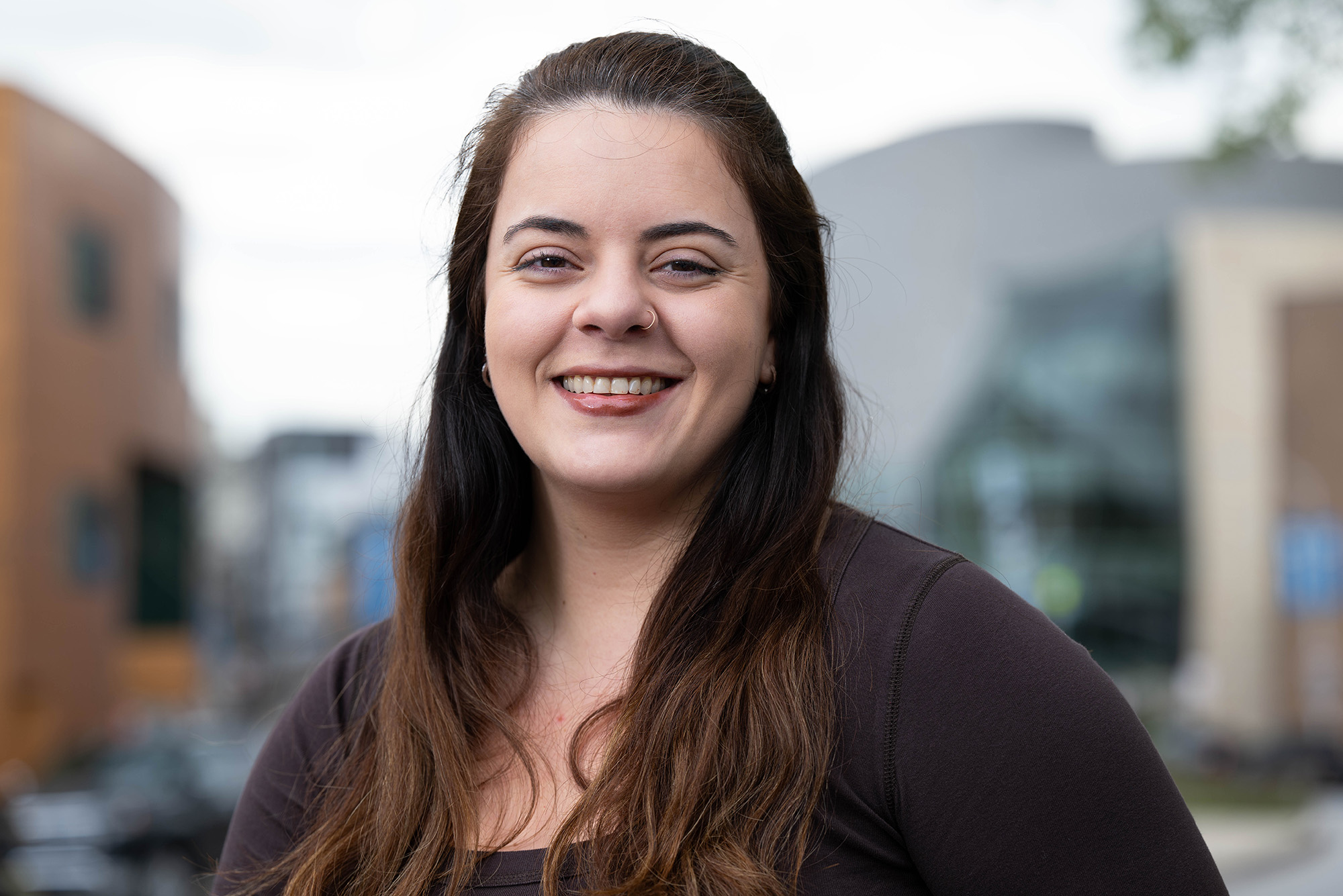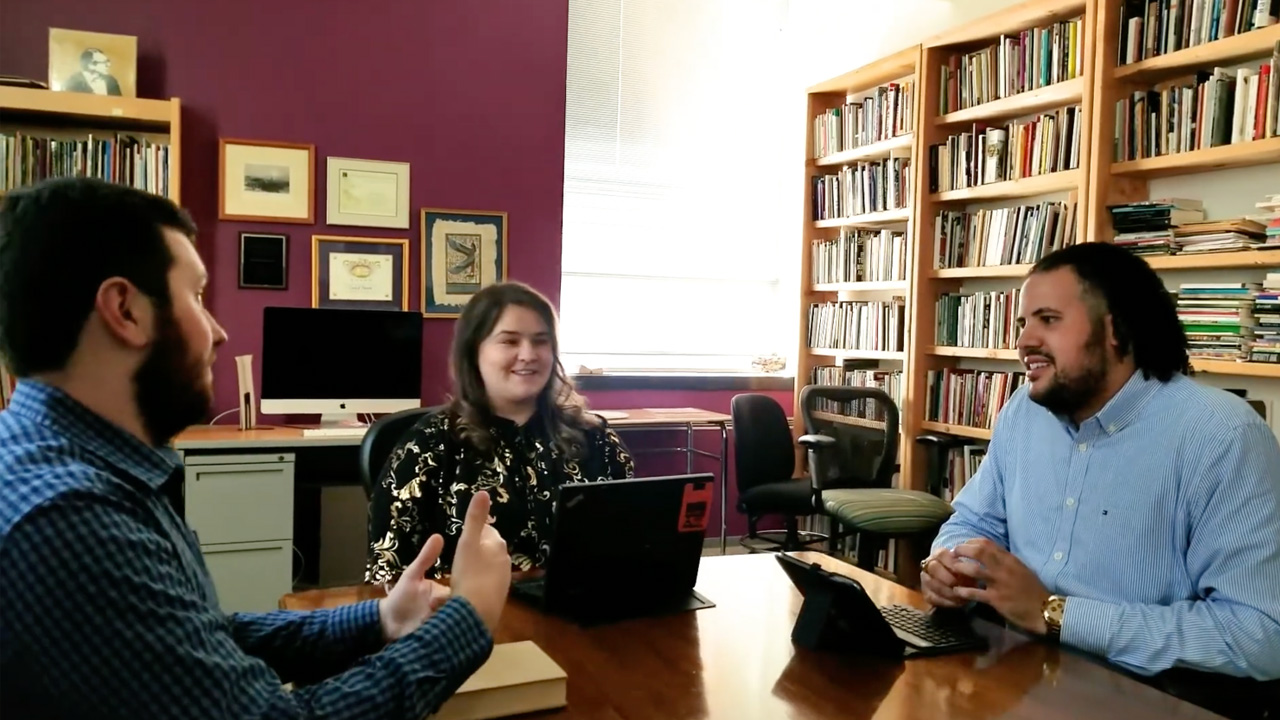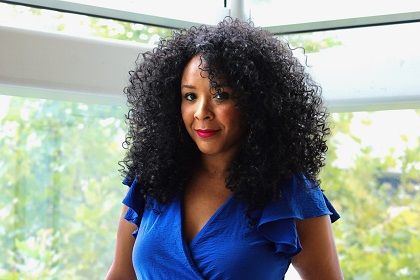Industrial and Organizational Psychology

Why This Degree is For You
The 42-credit M.S. in Industrial and Organizational (IO) Psychology prepares students for careers as practitioners and researchers by emphasizing a curriculum of evidence-based practice and course activities that enhance student experiential learning.
|
|
Psychology, Health and Human Services
Program Type
Locations/Format
Cost
More About Tuition & Fees
• UBalt offers "regional, in-state tuition" for select out-of-state areas.
Requirements
Quick Links
M.S. in Industrial and Organizational Psychology
When you choose the UBalt Industrial and Organizational (IO) Psychology program, you'll focus on preparing yourself to facilitate effective leadership within organizations and to help those same organizations hire, train and motivate employees.
Why IO psychology?
IO psychology applies psychological principles developed from rigorous scientific
research to enable problem-resolution in the workplace. As half of adults' waking
lives are spent in the workplace, IO psychologists contribute to aligning organizations'
missions with its people. We do that by focusing on the essential human components
that create high functioning organizations, including selecting the right job applicants,
training employees and measuring their performance, designing professional growth
and motivation strategies, assessing organizational climate and facilitating change
management. Due to the important role that IO psychologists play in organizations'
success, job opportunities in the field continue to grow. The Bureau of Labor Statistics
has labeled IO psychology the fastest growing occupation, with a median pay of over $77,350.
In their words

Andressa Carvalho Viscone, B.A. ’22, M.S. '24, CERT '24
Andressa Carvalho Viscone had an opportunity to present research she conducted with
her professor, Sharon Glazer, at the Israel Organizational Behavior Conference at
the Tel Aviv University before she graduated.
“Having the opportunity to talk with people who have been in the field for a while
who are doing focused research in specific topics gives a good idea of all the things
that we can do.”

Megan Erickson, M.S. '20
"The University of Baltimore's IO psychology program really fosters a tight-knit community; even after graduating, I keep up with my cohort and I also plan to keep in touch with my professors. You definitely don't see that from all programs!"
Megan is a research analyst with The University of Baltimore's Center for Advancing Prevention Excellence.
FAQ
Although an internship and/or practicum is not required, it is an option that many students have found to be beneficial in getting a full-time job upon graduation. Many internship opportunities in this field are paid.
Normally students would embark upon an internship no earlier than the first summer after their first fall and spring semesters. Most qualified internships require some budding expertise in IO Psychology and going after an internship before you are ready could actually not be beneficial.
To be admitted into this program, a basic understanding of descriptive stats, correlation, regression and analysis of variance (anova) is required. Undergraduate Research Methods is also expected.
SIOP presents 25 competencies that are ideal for IO Psychology contributors. However, not all areas would be of interest to you nor of interest to potential employers. For the most part, employers are looking for graduates with current, state-of-the-art knowledge related to personnel selection and assessment, organizational psychology and organization development, survey development, implementation, and data analyses, as well as taking evidence-based research and translating them to business acumen. It also takes dependability, conscientious, motivation, showing initiative and being able to interact well with clients.
A thesis is not required, but it is optional. Students who plan to pursue doctoral studies, wish to keep their options open for pursuing doctoral studies, or want to be involved in a research oriented position are suggested to complete a thesis. One should consider that to complete a thesis, about 12-14 months of dedicated time is required and we recommend starting your thesis in your first summer after completing the first fall and spring semesters. During the summer students normally prepare their thesis proposal and pursue their thesis studies during the subsequent academic year.


What Our Graduates Do
Common Roles
- Organizational Development Consultant
- Employee Experience Manager
- Performance Analyst
- Change Management Consultant
- Compensation and Benefits Manager
- Training and Development Manager

A Message from Dean Christine Spencer
Read Full StoryA degree from the Yale Gordon College of Arts and Sciences is more than an academic credential; it is a gateway to new possibilities.









